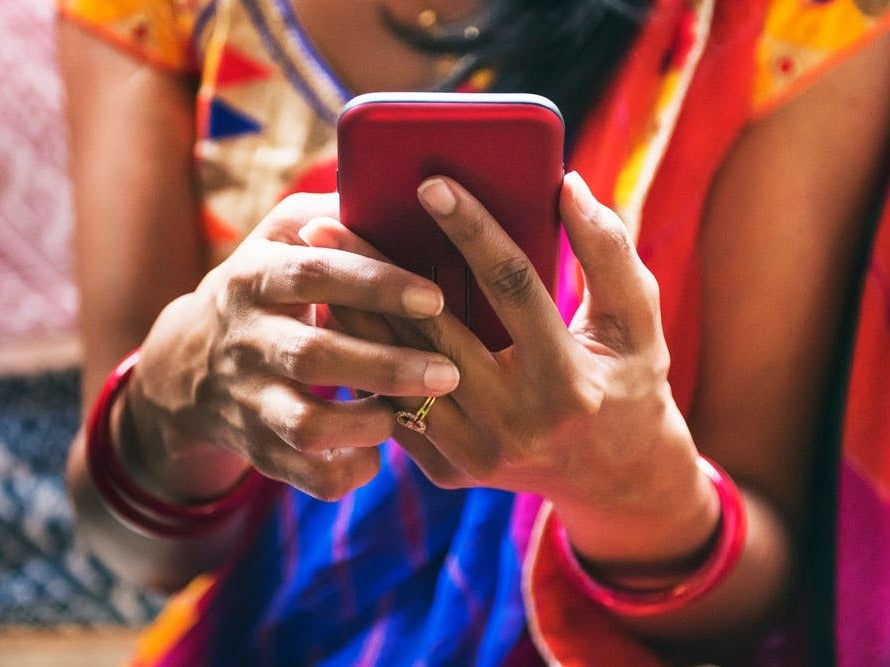‘Rape threats were routine’: India’s female politicians bombarded with vitriolic online abuse
‘If they don’t like my strong opinions, they do not remark on my work but call me a ‘whore’,’ says politician

Your support helps us to tell the story
From reproductive rights to climate change to Big Tech, The Independent is on the ground when the story is developing. Whether it's investigating the financials of Elon Musk's pro-Trump PAC or producing our latest documentary, 'The A Word', which shines a light on the American women fighting for reproductive rights, we know how important it is to parse out the facts from the messaging.
At such a critical moment in US history, we need reporters on the ground. Your donation allows us to keep sending journalists to speak to both sides of the story.
The Independent is trusted by Americans across the entire political spectrum. And unlike many other quality news outlets, we choose not to lock Americans out of our reporting and analysis with paywalls. We believe quality journalism should be available to everyone, paid for by those who can afford it.
Your support makes all the difference.Female politicians in India are being bombarded with death and rape threats and vitriolic abuse on Twitter, a damning report has found.
The Amnesty International India study, which is the first of its kind, discovered nearly 100 Indian women politicians faced abuse on social media during last year’s elections.
Researchers found they suffered substantially higher abuse than fellow British and American female lawmakers, and one out of every seven tweets which included mention of the female politicians in India was either problematic or abusive.
Some 95 female politicians received nearly 1 million hateful mentions on Twitter between March and May – of which one in five was sexist or misogynistic.
The study discovered women who voice their views are not just abused for their opinion but also for their gender, caste, religion, marital status and other elements of their identity.
Hasiba Amin, social media convener for the Indian National Congress party, said she had suffered “traumatising” abuse since going into politics in 2014.
She said: “Rape threats were routine, as were character assassinations, insinuations about my sexual relationships with older men ... Now, in 2019, I have considerably reduced my activity on Twitter. I ask myself how trollable is that and whether I really need to put up my opinion.”
Muslim women politicians were subjected to 94 per cent more ethnic or religious slurs than their female counterparts belonging to other religions. Unmarried women were also found to suffer a disproportionate amount of abuse.
Shazia Ilmi, a politician from the country’s largest party, the BJP, said: “More women should be entering politics. But the price that I pay is too much for what I choose to do. The price includes being trolled incessantly, being the victim of online harassment, having a lot of remarks passed about what I look like, my marital status, why I have or don’t have children, etc – all the filthiest things you can think of.
“If they don’t like my strong opinions, they do not remark on my work but call me a ‘whore’ in every language that is used in India”.
She said being a Muslim woman is sometimes a “huge burden” and she is subjected to so much more hate than that suffered by a Muslim man.
Kavita Krishnan, from Communist Party India (Marxist-Leninist) Liberation, said: “It is particularly frustrating and mentally stressful when you report something, but Twitter or Facebook says that ‘this does not violate their norms’. I feel these platforms should either get rid of their reporting business or stop pretending that they have these norms, because if they are not going to act on them then they should not have them at all.”
Avinash Kumar, executive director of Amnesty International India, said: “Women are regularly and relentlessly subjected to abuse on the platform, which has a silencing effect on them.”
Amnesty International India showed its findings to Twitter and asked whether the social media platform had introduced any processes to curb abuse during the recent general election.
“Building a Twitter free of abuse, spam and other behaviours that distract from the public conversation is one of their top priorities,” a spokesperson for Twitter said.
“It has made strides in creating a healthier service and continues to further invest in proactive technology to positively and directly impact people’s experience on the service.”
Female Indian politicians have also seen men publish fake, doctored intimate porn videos of them which are known as “deepfakes” and are a growing problem around the world.
Chandrani Murmu, the nation’s youngest member of parliament at 26, was the victim of a “deepfake” which saw her face overlaid onto an explicit video before she was elected last year.
Dr Debarati Halder, managing director of the Centre For Cyber Victim Counselling and co-author of Cyber Crimes Against Women in India, told CNN men were disseminating “deepfake” porn of female politicians.
Join our commenting forum
Join thought-provoking conversations, follow other Independent readers and see their replies
Comments